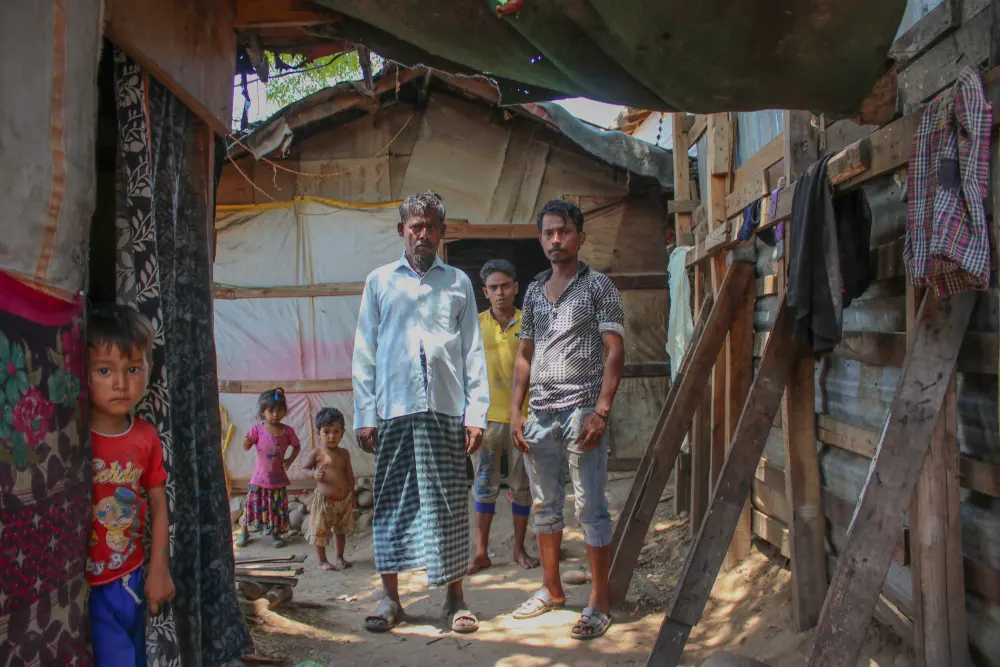Organized hate, amplified by social media platforms like Facebook, has been instrumental in the persecution of the Rohingya, a Muslim ethnic minority in Myanmar. This has fueled severe human rights abuses, intensifying pre-existing societal prejudices and directly contributing to acts of violence and genocide.
The escalation of online hate speech and its devastating real-world consequences highlights the urgent need for robust measures to combat hate speech and protect vulnerable communities. But how did social media become a key driver in such a tragedy?
The origins of the conflict between Muslims and Buddhists in Rakhine State date back to colonial times. Since gaining independence in 1948, the conflict between the Rohingya, the Buddhist majority population, and the Tatmadaw has periodically flared up.
The Rohingya, a predominantly Muslim ethnic minority in Myanmar’s northern Rakhine State, have been politically marginalized under the 1982 Citizenship Law, which denies them citizenship and civil rights. The conflict between the Rohingya and the Buddhist majority escalated dramatically between 2016 and 2018, culminating in the Tatmadaw’s ethnic cleansing campaign in August 2017. Despite international condemnation, the Rohingya remain under siege in Myanmar, with reports of ongoing attacks and systemic oppression. The persistent cycles of violence underscore the deep-seated nature of the conflict.
Role of Social Media
Initially hailed as a tool for democratic change during Myanmar’s political transition in the 2010s, social media, particularly Facebook, quickly became a breeding ground for hate speech and disinformation. After five decades of military dictatorship, Myanmar underwent a decade of junta-initiated liberalization, which was halted by a military coup in February 2021. In the lead-up to the massacres, hate speech against Muslims, especially the Rohingya, surged online. Thousands of posts dehumanized this minority, using racist language and violent imagery, which served to secure public support for the military’s brutal campaign.
Radical Buddhist nationalist groups such as the MaBaTha Movement – which can be translated to the Patriotic Association of Myanmar – as well as actors linked to the Tatmadaw spread false information, fear, and hatred systematically. The Tatmadaw even created fake accounts and pages specifically for this purpose.
Organized online hate speech translated into violence against the Rohingya, with Facebook’s algorithms further amplifying inflammatory content to keep users engaged. Facebook became a key vehicle for disseminating anti-Rohingya propaganda, securing public support for the military campaign. According to Agnès Callamard, Amnesty International’s Secretary General, Meta, Facebook’s parent company, had profited from the “echo chamber of hatred created by its hate-spiraling algorithms.” The UN’s Independent Investigative Mechanism for Myanmar found a direct link between hate speech and the escalation of violence and atrocities against the Muslim minority.
Continuing Legacy of Hate Speech: Beyond the Rohingya Conflict
The consequences of hate speech in Myanmar extend far beyond the Rohingya conflict. Researchers suggest there would not have been anti-Muslim riots without Facebook. Hate speech and disinformation were rampant leading up to the 2020 elections, seemingly organized to shape public perception.
Following the 2021 military coup, incidents of hate speech and fake news further increased, particularly from the military and its supporters, targeting protesters, activists, and ethnic minorities. These incidents regularly lead to violence, as seen in the aftermath of a massacre in Southern Shan State in March 2023, where online disinformation and hate speech inflamed local ethno-religious tensions. Hence, hate speech continues to deepen divisions within Myanmar society.
Challenges Ahead
Facebook acknowledged that it failed to prevent its platform from being misused to incite violence and division in the case of the Rohingya conflict. Despite this admission, the platform continues to struggle with managing hate speech.
The spread of discriminatory and violent rhetoric legitimizes human rights violations and normalizes extremist and nationalist discourses. When respected and influential societal figures spread hate speech, it signals to the general public that endorsing or spreading hatred and violence is acceptable.
The case of Myanmar underscores the need for greater accountability from governments, the international community, and tech companies in combating the spread of disinformation and incitement to hatred. As Myanmar’s recent history shows, the failure to address these issues can have devastating consequences.
(Julia Wiessmann is a PhD candidate and associate lecturer at the Institute of Political Science at Heidelberg University. Her research interests extend into the topics of comparative politics, social movement studies, and political violence.)
